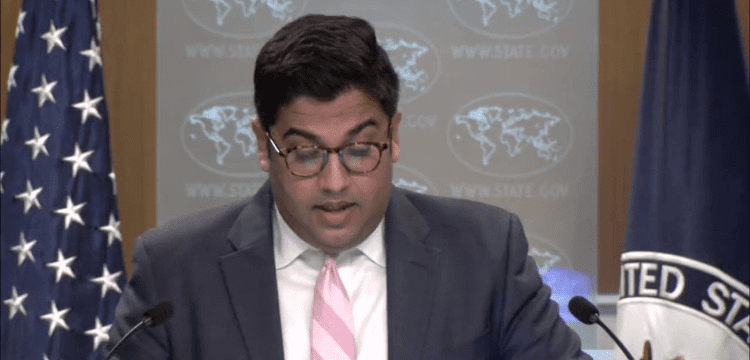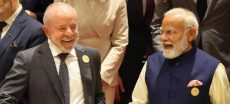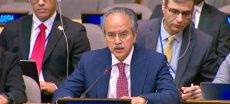[vc_row][vc_column][vc_column_text dp_text_size=”size-4″]The absence of Pakistan from the second ‘Summit for Democracy,’ hosted by US President Joe Biden this week, according to US State Department Principal Deputy Spokesperson Vedant Patel, does not change Washington’s willingness to continue working with Islamabad.
Patel expressed regret at a press conference about Pakistan’s decision not to attend the democracy summit. He did, however, point out that Pakistan is a “sovereign state” that “can make decisions for itself.”
He stated that the United States and Pakistan collaborate on a wide range of issues and that Washington will continue to engage with Pakistan on issues relating to democracy and human rights, adding that the two countries also have a “important security partnership.”
In response to a question about the increasing number of terrorist attacks in Khyber-Pakhtunkhwa (K-P) and Pakistan-US counterterrorism cooperation, Patel stated that “there is a deep security partnership with Pakistan, including counterterrorism efforts.”
Also Read: Pakistan will not attend US Democracy Summit.
When asked about relations with India and Pakistan, the spokesperson stated, “the United States values its important relationships with both our Indian partners and Pakistan, and these relationships stand on their own and are not a zero-sum proposition.
Pakistan decided to cancel the three-day democracy summit earlier this week after intense internal debate over China-related concerns. The United States had invited over 100 countries, including Taiwan, but had not invited China.
The Foreign Office issued a statement just hours before the summit began, citing reasons for not attending. “We are grateful to the United States and the co-host countries for inviting Pakistan to the Second Summit for Democracy, which will be held on March 29-30,” said a statement.
“We value our friendship with America.” This relationship has grown significantly during the Biden administration. “We remain committed to strengthening this relationship for the sake of regional peace, stability, and prosperity,” the statement continued.
According to the statement, Pakistan was not a part of the summit process, which began in 2021 and required countries to make certain national commitments.
“The Summit process is now at an advanced stage and therefore, Pakistan would engage bilaterally with the United States and co-hosts of the Summit to promote and strengthen democratic principles and values and work towards advancing human rights and the fight against corruption,” it said.
Pakistan’s decision was complicated by the fact that the US did not invite China or Turkey to the summit, while Taiwan attended. Pakistan has close ties with both China and Turkey, and any decision would take both countries’ concerns into account, particularly Beijing’s.
Because China was not invited to the first US democracy summit in December 2021, Islamabad opted out. Pakistan also declined to attend the summit because President Biden did not speak with then-Prime Minister Imran Khan. Furthermore, Imran was only asked to send a recorded video statement for the summit, forcing the government to stay away.
Beijing applauded Islamabad’s decision, reinforcing the perception that Pakistan made the decision at China’s request.
Since the change of government in April of last year, both Pakistan and the United States have made a concerted effort to reestablish relations. Similarly, Pakistan is desperate for an IMF bailout, and the US’s role could be critical.
At the same time, Pakistan cannot antagonise China, whose support is critical for the country if an IMF deal is not reached.
“To be honest, we need to remain neutral. We must stay out of the big powers’ power game “According to a source, Pakistan is skipping the summit for the second time.[/vc_column_text][/vc_column][/vc_row]











